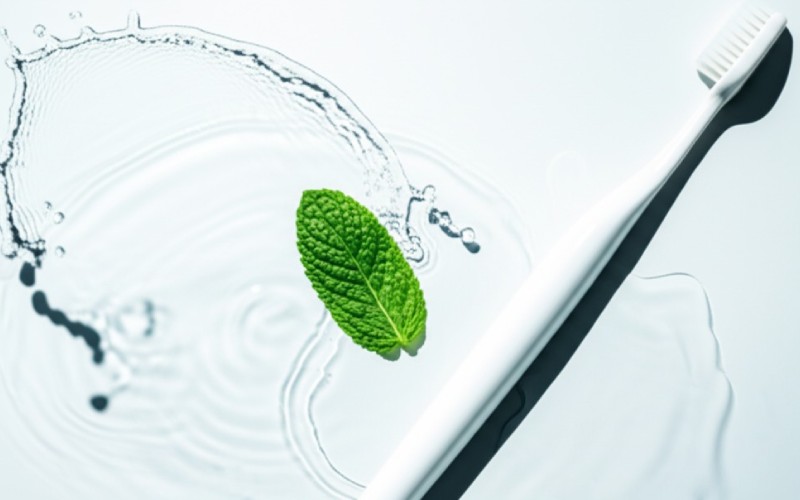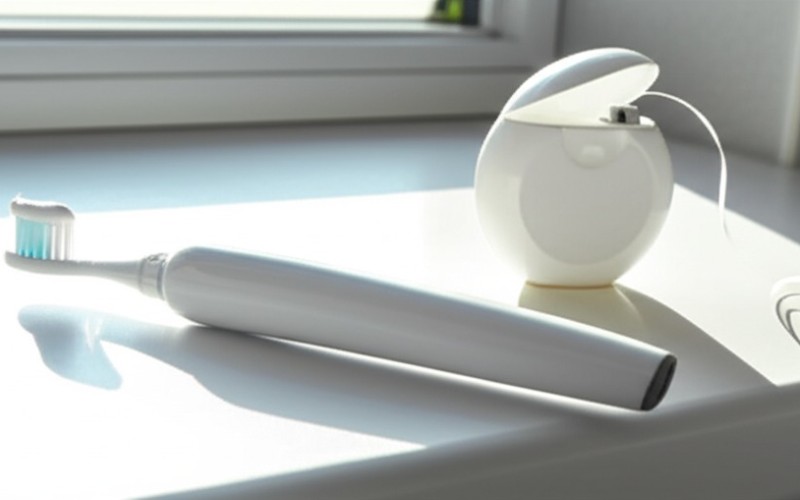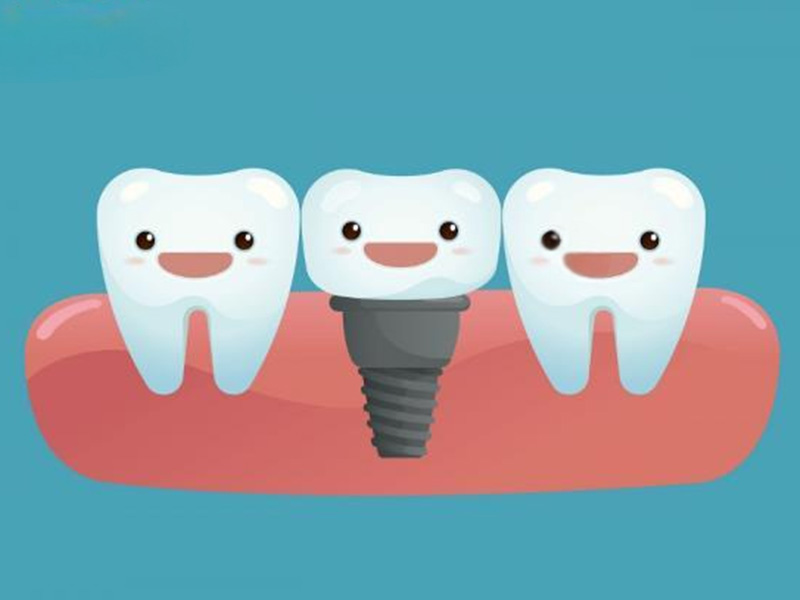
How I Finally Got Rid of My Bad Breath: A Guide to Prevent and Treat Halitosis
The official term for bad breath is halitosis. In this article is for you. I will share everything about how to prevent and treat halitosis. You will find simple steps and home remedies that really work. You don’t have to suffer from bad breath anymore. Let’s get you on the path to fresh, clean breath today.
Indholdsfortegnelse
What Is Bad Breath, or Halitosis?
Let’s start with the basics. Bad breath, or halitosis, is when a bad smell comes from your mouth. The main symptom is bad breath that you or other people can notice. It’s a very common problem. Many people worry about it. You may notice it most in the morning. This is often called morning breath. But for some, the problem lasts all day long. Experiencing bad breath can be embarrassing, but it is usually fixable.
The odor of bad breath can vary. It depends on what is causing your bad breath. Sometimes, you might not even know your breath smells. A good friend or family member might be the one to tell you. It is nothing to be ashamed of. The scientific term for bad breath is halitosis. Knowing the name helps you talk to a dentist about it. A bad mouth odor is a sign that something is off. It could be something simple or a sign to check your health.
The key is to find out why your breath smells bad. The possible causes are many, from the food you eat to your daily habits. For most people, fixing bad breath starts with simple changes. It is not just about covering up the smell. It is about finding the root cause and fixing it. This is the first step to get rid of halitosis for good.
What Is the Main Cause of Bad Breath?
So, what is the main cause of bad breath? In most cases, the answer is bacteria. Your mouth is full of tiny living things called bacteria. When you eat, tiny food particles can get stuck between your teeth and on your tongue. Bacteria feed on these leftover bits of food. As they do, they release smelly gases. This process is what often causes the unpleasant smell we call bad breath.
Your breath is caused by this activity. Think of it like a tiny garbage can in your mouth. If you don’t empty it, it starts to stink. This is why good oral hygiene is so important. When bacteria and food are not cleaned away, they form a sticky film called plaque. Plaque can build up on your teeth and under your gum line. This buildup leads to more bad breath.
There are many causes for bad breath. But the most common one is the buildup of bacteria in the mouth. These bacteria thrive in places that are hard to clean. The main cause bad breath problem starts here. Other causes include dry mouth, certain foods, and smoking. But if you want to tackle bad breath, you have to start by controlling the bacteria.

Can Poor Dental Habits Cause Bad Breath?
Yes, absolutely. Poor oral hygiene is a top reason people have bad breath. If you don’t brush and floss your teeth every day, you are inviting trouble. Forgetting to clean your teeth lets food particles and bacteria build up. This leads to decay and bad breath. It also increases your risk of gum disease.
Poor oral habits create the perfect home for smelly bacteria. When you have a buildup of bacteria, your mouth will not smell fresh. Bacteria in your mouth can also lead to cavities and infections. One of the worst problems is gum disease. This is a serious infection of the gum tissue. It is a major cause bad breath problem and can even lead to tooth loss. If your gums are red, swollen, or bleed when you brush, you might have gum disease.
Having bad habits like not cleaning your teeth well is a sure way to get bad breath. It’s not just about brushing. You have to do it correctly. This means using a good toothpaste and getting into all the little corners of your mouth. Things like Tandproteser, holdere og Tandbeskyttere also need to be cleaned daily. If not, they can also collect bacteria and cause bad breath. Changing these bad habits is a huge step.
How Do I Get Rid of Bad Breath With Home Remedies?
The good news is that you can start to get rid of bad breath right at home. First, you must improve your oral hygiene. You need to brush your teeth for two minutes, twice a day. And you must floss at least once a day. This is the most important step to remove plaque and food stuck between your teeth. Regular brushing and flossing is your best defense.
Next, drink plenty of water. A dry mouth is a big friend to bad breath. When your mouth is dry, you don’t have enough saliva. Saliva is your body’s natural way to rinse your mouth and wash away bacteria. Keeping your mouth moist helps to reduce bad breath. Keep a water bottle with you all day. This helps keep your mouth moist and healthy.
You can also use a mouth rinse. A good mouthwash can kill bacteria that cause bad breath. Look for one that is made to fight halitosis. Just swish it around your mouth after you brush. It can help freshen the breath for a while. Remember to rinse your mouth with water after meals, too. This helps wash away food before bacteria can start to work on it. These simple changes can make a big difference.
Why Is It So Important to Brush My Tongue?
Many people brush their teeth but forget their tongue. This is a big mistake if you want to stop bad breath. Your tongue is like a carpet. It has many little bumps and grooves where bacteria can hide. In fact, a lot of the bacteria that cause bad breath live on your tongue. The back of the tongue is a favorite spot for them.
When you clean your tongue, you remove a huge source of bad breath. You can brush your tongue with your toothbrush after you finish your teeth. Gently brush from back to front. Some people find that this makes them gag. If that happens to you, try a tongue scraper. A tongue scraper is a small tool designed to clean the surface of your tongue. They work very well to remove the coating of odor-causing bacteria.
Try using a tongue scraper every morning. You will be shocked at what comes off your tongue the first time. Cleaning your tongue helps you reduce bad breath more than almost anything else. It is a simple step that helps to freshen the breath and improve your oral health. Don’t skip this step if you are serious about fighting bad breath.

Will Chewing Gum Really Help My Bad Breath Odor?
Many of us reach for gum or breath mints when we worry about our breath. But does it really help? Yes and no. Chewing gum can cover up a bad odor for a short time. This is helpful if you just ate a strong food and need a quick fix. However, it is only a temporary solution. The bad breath will come back once the fresh flavor of the gum is gone.
The real benefit of chewing gum is that it helps you make more saliva. When you chew, your mouth makes more spit. This increased saliva production helps to wash away food bits and bacteria. This is why it is important to choose sugar-free gum. Chewing gum with sugar can actually make bad breath worse. The sugar feeds the bacteria in your mouth, leading to more smelly gas and plaque.
So, if you are going to chew gum, make sure it is sugar-free. It can be a useful tool to help keep your breath fresh during the day. But remember, it does not replace good brushing and flossing. It is a helper, not a cure. To really treat bad breath, you have to clean your mouth well. A piece of gum is like a small shower, but brushing your teeth is like a deep clean.
What About That Awful Garlic Breath?
We have all had it. You enjoy a meal with a lot of garlic or onion, and you pay for it later with your breath. This kind of bad breath is a little different. When you eat certain foods like garlic, the smelly compounds get into your blood. From your blood, they travel to your lungs. You then breathe them out. This is why brushing right after eating garlic doesn’t completely fix the garlic breath. The odor is coming from your lungs.
So what are the ways to get rid of it? The smell will stay until your body has fully processed the food. This can take several hours. Drinking lots of water can help flush your system faster. Eating certain other foods might help cover the smell. For example, chewing on fresh parsley or mint leaves can help. Apples and lettuce are also said to fight garlic breath.
These foods can make your breath stink, but it is usually temporary. The best way to deal with it is to be patient. Or, you can avoid bad breath by avoiding these foods if you have an important event. Getting rid of this type of bad breath is mostly a waiting game. It’s not a sign of poor oral hygiene. It’s just a sign that you had a delicious meal!
Can a Health Problem Cause Halitosis?
Sometimes, bad breath is not just about what is happening in your mouth. A health problem can also be the cause of halitosis. This is especially true if you have chronic bad breath that does not go away with good cleaning. An underlying health problem could be the real reason your breath smells. For example, a sinus infection or tonsil stones can cause bad breath.
A common issue is dry mouth. While it can be caused by not drinking enough water, it can also be a side effect of some medicines or a symptom of a health condition. Another health condition that can cause bad breath is acid reflux, also known as gastroesophageal reflux disease (GERD). Stomach acids can come up into your throat and mouth, causing a sour smell and a bad taste in your mouth.
More serious issues like diabetes, kidney problems, or liver disease can also cause a specific kind of bad breath. If your bad breath that doesn’t go away and you have good dental habits, it is a good idea to see a doctor. Your doctor or dentist can help you figure out if an underlying health issue is the cause. It is important to treat the real health problem, not just the symptom of bad breath.
When Should I See a Dentist for a Bad Breath Treatment?
You should see your dentist regularly for checkups. But if you have bad breath that won’t go away, you should make a special appointment. A dentist is your best partner in finding a good bad breath treatment. They can check for problems like cavities, plaque buildup, or gum disease. These are all common causes of lasting bad breath.
If you have tried everything at home and still suffer from bad breath, it is time for professional help. The dentist may do a deep cleaning to remove tartar that you can’t remove with a brush. They can also check for signs of gum disease. Early treatment for bad breath is important. If you let gum disease get worse, it can damage your gums and the bone that holds your teeth.
Your dentist can give you a clear plan. They might suggest a special toothpaste or a prescription mouth rinse. The dentist may also want to talk about your diet and habits. Finding a good treatment for halitosis starts with a proper exam. Don’t be shy about talking to your dentist. They have seen it all before and are there to help you improve your oral health.
What Are the Best Ways to Avoid Bad Breath Long-Term?
To avoid bad breath for good, you need to build healthy habits. The foundation is good oral hygiene. This means you must brush your teeth for two minutes, twice a day. You also must floss at least once a day. This daily routine is your number one weapon against the bacteria that lead to bad breath. Poor oral hygiene is simply not an option.
Next, take care of your whole mouth, not just your teeth. Brush your tongue every day or use a tongue scraper. Rinse your mouth with water after you eat. Stay hydrated to prevent dry mouth. Chew sugar-free gum to help your saliva flow. These small steps add up to make a big difference in how you keep your breath smelling fresh all day.
Finally, live a healthy lifestyle. Eat a balanced diet with lots of fruits and vegetables. Cut back on sugary foods and drinks that feed bacteria. See your dentist for regular checkups and cleanings. If you follow these steps, you will not only get fresh breath, but you will also improve your overall oral health. This is the best way to get rid of bad breath and keep it from coming back.
Ting at huske på
- Dårlig ånde is usually caused by bakterier i din mund.
- Børste your teeth twice a day and Tandtråd daily. This is the most important step.
- Don’t forget to clean your tongue. A lot of odor-causing bacteria live there.
- Drink plenty of water to avoid tør mund and help wash away food particles.
- Sugar-free tyggegummi can help by making more spyt.
- Some foods like garlic og onion can cause temporary dårlig ånde.
- Hvis din dårlig ånde doesn’t go away, see a Tandlæge. It could be a sign of a health condition som tandkødssygdomme.








